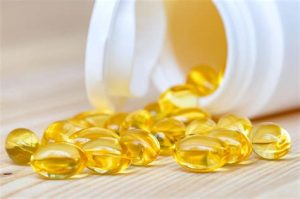Vitamin D and Hair Testing
What To Do About Vitamin D – Dilemma & Decision About Vitamin D
A collaboration by Dr. Rick Malter and Rachel Neumann

Media and Medical Brainwashing are the Mother of Mineral Insanity
Almost everyone is getting on the Vitamin D bandwagon now days, but at what cost to health and vitality? What questions should you ask before succumbing to the Vitamin D medical brainwashing?
- Do you know what affect taking vitamin D has on your mineral balance as a whole
- What else can occur when you decide to take Vitamin D?
- Is there some other way to raise Vitamin D levels other than supplementing with Vitamin D?
Get ready to be amazed at the cascade of changes in your mineral system that happen when you take Vitamin D. Not any of these changes are positive.
- “When we understand the fundamental concepts and principles related to HTMA interpretations based on the research of Drs. Eck and Watts, it’s easy to see how the vitamin D supplementation trend is going to impact thyroid activity and exacerbate hypothyroidism.
- Vitamin D supplementation, especially in large dosages, is going to lower the HTMA potassium level and raise the calcium to potassium ratio (Ca/K).
- Hypothyroidism is going to occur or get worse.
- Depending on the strength of a person’s adrenals and sodium level, the Na/K ratio will also be impacted by vitamin D supplementation.
- If the adrenals are burned out (Sodium (Na) level in the range of 1 – 4), the effect of vitamin D will bring on extreme exhaustion and fatigue.
- Sodium (Na) and Potassium (K) will both be extremely low in the HTMA.
Okay, lets see that again in slow motion! Vitamin D supplementation is going to:
- Impact thyroid activity.
- Increase hypothyroidism.
- Lower the mineral level of potassium.
- Increase the calcium level over potassium ratio.
- Hypothyroidism is going to get even worse!
- The sodium to potassium ratio will be adversely affected.
- If adrenals are at the burn out stage Vitamin D will bring on even more exhaustion and fatigue.
- Both sodium (Na) and potassium (K) will be extremely low as a result of Vitamin D.
- However, if the adrenals are strong enough to raise the sodium (Na) level, then the vitamin D supplementation, by lowering potassium (K) will produce an elevated sodium to potassium (Na/K) ratio, more intense stress, and an accelerated Magnesium (Mg) burn rate.
- Magnesium (Mg) will be lost and excreted from the body so that a higher calcium to magnesium (Ca/Mg) ratio will also occur. Therefore, in many cases, there is more than just an exacerbation of hypothyroidism, but also a cascade of other critical changes occurring in the person’s mineral system.
If the person has strong adrenals and begins taking vitamin D:
- Vitamin D will lower the cellular potassium (K) level.
- Elevate the sodium (Na) level.
- Intensify the sodium/potassium (Na/K) ratio.
- Increase stress.
- Accelerate the magnesium (Mg) burn rate.
- Create a loss of magnesium (Mg) from the cell.
- Increase the calcium/magnesium (Ca/Mg) ratio.
- Create a cascade of other critical changes in the mineral system
Correlation does not equal causation!
Chemically, vitamin D is a steroid that functions as a hormone.
Concerns about vitamin D deficiency arose when studies showed that some patients with autoimmune diseases have lower levels of serum 25(OH)D and study subjects given vitamin D had lower rates of autoimmune diseases and fewer markers of inflammation.
But this correlations does not necessarily mean that low vitamin D levels caused the autoimmune disease. The studies only show a link between low 25(OH)D and illness; researchers and clinicians understand that correlation does not equal causation.
There are very good reasons to be skeptical of vitamin D supplementation. Studies ignore mineral tissue levels and HTMA, and when studies get into the clinic, it often doesn’t work out quite as well.
- Why are those vitamin D levels so low?
- Why do physicians seldom ask this question
- Tests frequently show low Vitamin D levels even after supplementing with Vitamin D.
Is there another mineral that requires the levels of vitamin D to rise?
Why does soft tissue calcification in crease, while magnesium (Mg) levels sink even lower, and tissue calcium (Ca) go even higher when Vitamin D is supplemented?
Calcium (Ca) belongs in the bone, not in the tissues. What is that important mineral needed in order to put calcium in the bones where it belongs? It actually makes much more sense to examine the correlation between magnesium and vitamin D.
Not only does magnesium (Mg) play a very important role in proper Vitamin D activity and function, it also helps to maintain calcium balance!
So here is the bottom line on Vitamin D:
- Magnesium & Storage Hormone-D are tied together…
- Calcium and Active Hormone-D are tied together…
So, when Storage Hormone-D is LOW, this is what it REALLY means:
- Magnesium is likely deficient or certainly low.
- Active Hormone-D is HIGH — they are on a seesaw!
- Calcium is also HIGH — again, it’s on a seesaw with magnesium.
And, when Storage Hormone-D is low, it means you need more Magnesium plus more healthy fats in your diet.
Now tell me again – why are you taking Vitamin D?

